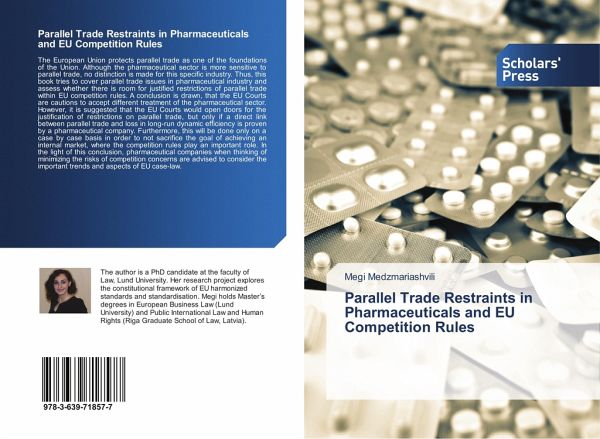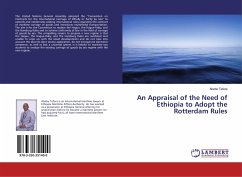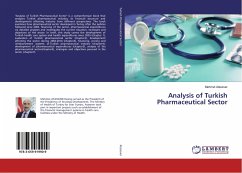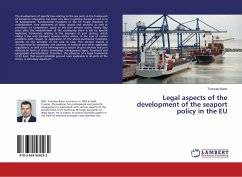
Parallel Trade Restraints in Pharmaceuticals and EU Competition Rules
Versandkostenfrei!
Versandfertig in 6-10 Tagen
30,99 €
inkl. MwSt.

PAYBACK Punkte
15 °P sammeln!
The European Union protects parallel trade as one of the foundations of the Union. Although the pharmaceutical sector is more sensitive to parallel trade, no distinction is made for this specific industry. Thus, this book tries to cover parallel trade issues in pharmaceutical industry and assess whether there is room for justified restrictions of parallel trade within EU competition rules. A conclusion is drawn, that the EU Courts are cautions to accept different treatment of the pharmaceutical sector. However, it is suggested that the EU Courts would open doors for the justification of restri...
The European Union protects parallel trade as one of the foundations of the Union. Although the pharmaceutical sector is more sensitive to parallel trade, no distinction is made for this specific industry. Thus, this book tries to cover parallel trade issues in pharmaceutical industry and assess whether there is room for justified restrictions of parallel trade within EU competition rules. A conclusion is drawn, that the EU Courts are cautions to accept different treatment of the pharmaceutical sector. However, it is suggested that the EU Courts would open doors for the justification of restrictions on parallel trade, but only if a direct link between parallel trade and loss in long-run dynamic efficiency is proven by a pharmaceutical company. Furthermore, this will be done only on a case by case basis in order to not sacrifice the goal of achieving an internal market, where the competition rules play an important role. In the light of this conclusion, pharmaceutical companies when thinking of minimizing the risks of competition concerns are advised to consider the important trends and aspects of EU case-law.












